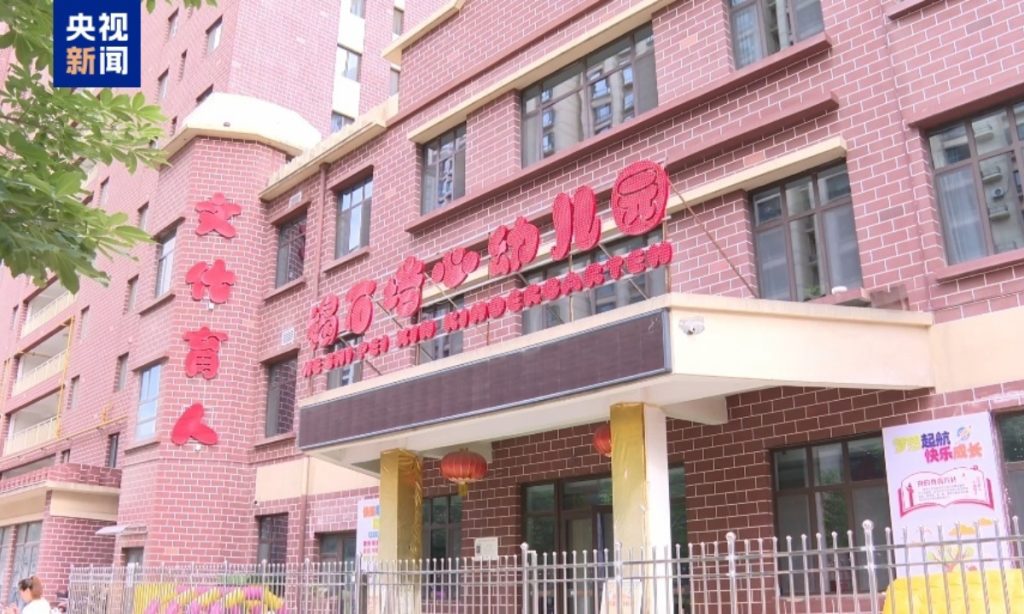8 individuals involved in children’s abnormal blood lead case in NW China’s Gansu placed under criminal detention

Eight individuals connected to the children's abnormal blood lead case at a kindergarten in Tianshui city, Northwest China's Gansu Province, have been placed under criminal detention after investigations revealed that the kindergarten illegally added inedible painted pigments to children's foods, Xinhua News Agency reported on Tuesday.
The joint investigation team in Tianshui city released on Tuesday a notice on the case, China Central Television (CCTV) reported.
According to a notice, as of 10 pm on Monday, all 251 children at Peixin Kindergarten have been tested. According to blood lead standards, 233 children were found to have abnormal blood lead levels, while 18 were within the normal range. The test results of the sampling from the kindergartens related to Peixin Kindergarten, including Weibei Kindergarten, Ciai Kindergarten, and Mengdiai Kindergarten, were all normal. At present, relevant departments have formed an expert team to fully carry out medical treatment efforts.
Of 223 food samples tested, 221 passed inspection, while two from Peixin Kindergarten failed. One sample was a leftover breakfast item, the tri-color red date steamed cake, and the other was a dinner dish, corn roll with sausage.
The lead content in the two samples was 1,052 milligrams per kilogram and 1,340 milligrams per kilogram respectively, both far exceeding the national food safety standard limit of 0.5 milligrams per kilogram for food contaminants.
The investigation also revealed that the kindergarten's head, surnamed Zhu, and its investor, surnamed Li, instructed kitchen staff to purchase decorative paint online, dilute it, and use it in preparing some food items.
In the early hours of July 3, the police seized the remaining hidden paint. Testing confirmed that the seized paint contained lead and the paint was clearly labeled as inedible on its packaging.
Currently, the public security authorities have placed Zhu and Li, and six others under criminal detention on suspicion of producing toxic and harmful food. Two additional individuals are under compulsory measures with bail pending trial.
After the incident happened, the National Health Commission and the National Disease Control and Prevention Administration on Friday dispatched experts to Tianshui to guide the on-site handling of the incident, according to Sun Chengye, chief expert of poison control from the Chinese Center for Disease Control and Prevention.
Regarding the follow-up treatment of the affected children, Zhang Hao, director of the Health Commission of Gansu Province said that Gansu has mobilized 18 provincial-level experts in toxicology, critical care, and pediatrics to participate in the treatment. Three designated hospitals at provincial and municipal levels have been selected with sufficient bed capacity prepared and a green channel established.
Additionally, three expert outpatient clinics have been set up for lead poisoning, pediatrics and psychological counseling at Tianshui Second People's Hospital. Emergency coordination has been made to supply medicine for treating lead poisoning to ensure the sufficient treatment needs for the affected children.
Liu Lijiang, mayor of Tianshui, said in a CCTV interview that the authorities felt deep sorrow and great remorse for the physical and psychological harm caused to the families of the affected children by this incident.
This incident exposed shortcomings and loopholes in the city's public food safety supervision, Liu said, adding that the authorities will draw profound lessons from it, strictly implement the "four strictest" requirements, improve and reinforce all relevant measures, firmly enforce regulatory responsibilities, and build a solid defense line for food safety to prevent such incidents from recurring.
After the incident, some parents of the children with abnormal blood lead levels described the treatment process for their children, saying some children must undergo over six hours of IV infusion every day, Jimu News reported.
The testing reports of several hospitalized children show that their blood lead levels exceeded 250 micrograms per liter, with some exceeding 450 micrograms per liter, according to media reports.
According to Yan Chonghuai, an expert at Xinhua Hospital Affiliated to Shanghai Jiao Tong University School of Medicine, the blood lead level in kindergarten-age children should be around 20 micrograms per liter. For children undergoing rapid growth and development, lead's neurotoxicity is particularly pronounced and can affect their intelligence quotient (IQ), Sichuan Daily reported.
Yan pointed out that the neurodevelopmental toxicity caused by lead is irreversible, which means that even if treatment brings blood lead levels back to normal, it is very difficult to reverse the damage caused to a child's IQ, expected level.